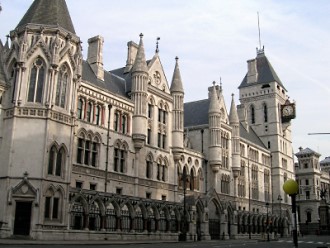Court finds residence test is not 'manifestly without reasonable foundation' and allows Lord Chancellor's appeal
The Court of Appeal has today allowed the Lord Chancellor's appeal against last year's High Court judgment which found the legal aid residence test to be unlawful and discriminatory.
 Image credit: WikipediaEIN members can read last year's judgment here and today's judgment in Public Law Project v The Lord Chancellor & Anor [2015] EWCA Civ 1193 here.
Image credit: WikipediaEIN members can read last year's judgment here and today's judgment in Public Law Project v The Lord Chancellor & Anor [2015] EWCA Civ 1193 here.
The High Court found last year that the discrimination of the residence test was impossible to justify "in an area where all are equally subject to the law, resident or not, and equally entitled to its protection, resident or not."
Lord Justice Laws stated in today's judgment: "It is common ground that the residence test is discriminatory within the meaning of ECHR Article 14 read with Article 6. I need not set out these provisions; the only question on this part of the case is whether the residence test, being discriminatory, can be justified as a proportionate measure for the achievement of a legitimate aim. The relevant aim is the saving of public expenditure; that is plainly legitimate. But it is necessary to decide by what criterion or criteria the issue of justification should be determined."
Allowing the Lord Chancellor's appeal, Lord Justice Laws ruled: "I would hold that the test for justification in this discrimination case is whether the residence test is 'manifestly without reasonable foundation'. Plainly, that test is not met."
Bindmans solicitors said that the Court of Appeal's decision today was "diametrically opposed" to the High Court's last year.
Bindmans stated of today's judgment: "its focus is on two narrow legal issues. First, the Court finds that ministers may use secondary legislation to withhold legal aid from particular groups of people on cost-saving grounds alone, regardless of need. Secondly, it holds that legal aid is, in effect, a welfare benefit and so withholding on discriminatory grounds it from some of those who need it just as much as others is justifiable unless 'manifestly without reasonable foundation'. The Court considered the test could be justified."
John Halford of Bindmans, who represents the Public Law Project, said: "The outcome of this appeal has exposed a fundamental difference in views between members of the judiciary on an issue which all accept is of real importance: when access to justice can only be secured with legal aid, can it be withheld from those who need it most but are not, in the words of the Lord Chancellor's explanation to Parliament, "our people" because they live abroad or have come here recently? If so, the idea of equality before the law becomes quite meaningless."
Halford added: "There is a compelling case for the Supreme Court to give a definitive ruling on who is right. We will be urgently seeking permission to present the case to that Court."